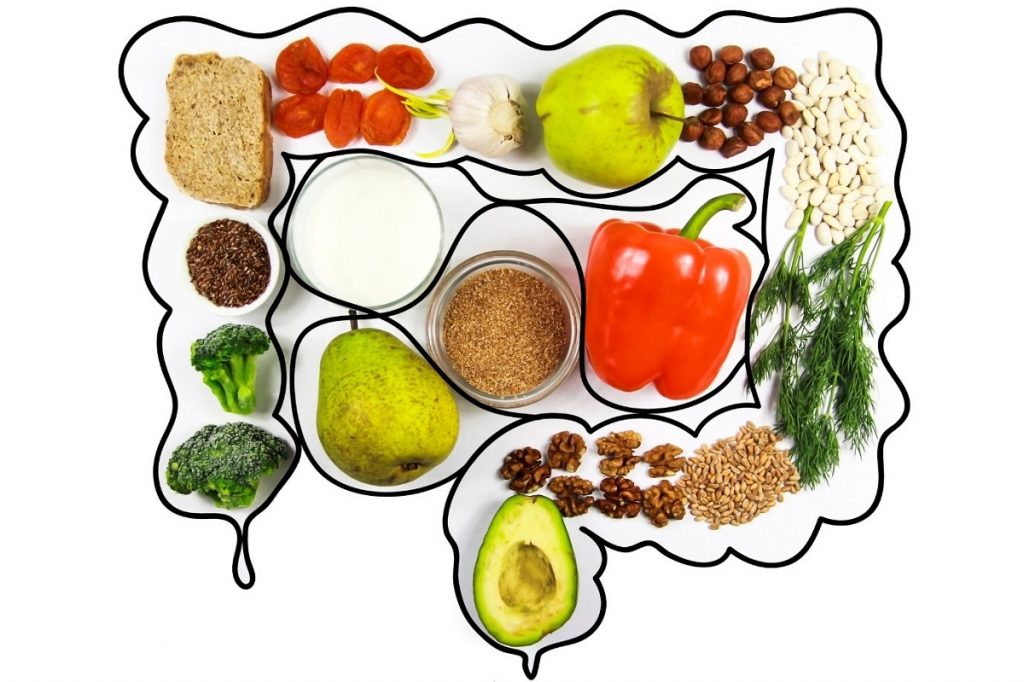Table of Contents
Do you have a healthy gut?
Your gut health is about so much more than eating well, having a slim body, and avoiding stomach aches. The health of your gut influences almost every other part of your body and how it functions – and you need to understand the importance of maintaining a healthy gut. This includes knowing the signs of an imbalance and how to fix it.

About the Gut
The term “gut” refers to the gastrointestinal tract. This is a series of hollow organs that begins in the mouth and traces its way through the body via the oesophagus, stomach, small intestine, large intestine (colon), rectum, and anus.
The gut maintains much of the working order of the body. It takes in and breaks down the foods and drinks we consume; it absorbs the essential nutrients that support functions including hormone balance, energy production, and skin and brain health; and is critical to the elimination of waste and toxins.
Did you know that your body is home to more bacteria than it is to human cells?
The gut is home to trillions of microscopic bacteria, fungi, parasites, and viruses. The majority of these reside in the caecum, a pocket at the beginning of the colon or large intestine near the appendix. Collectively, these are known as the microbiome and, in a healthy person, they maintain a delicate balance. Some of these are essential for health and well-being, while others can be very harmful if the balance is disrupted.
The Importance of Good Gut Health
Did you know that 70% of the immune system resides in the gut?
Of the 1,000 bacteria species in the human gut, each has its own role to play in the body, and the microbiome can actually be considered an organ in itself.
The microbiome has an array of functions:
- Digestion of fibre
- Digestion of breast milk in infants
- Immune system control
- Nervous system control and brain health
- Mood regulation
- Heart health and cholesterol management
- Blood sugar control
Signs of an Unhealthy Gut Include
- Bad breath
- Indigestion
- Bloating, cramps, abdominal pain
- Excessive, foul-smelling flatulence
- Constipation
- Diarrhea
- Hemorrhoids
- Anxiety, depression, and other mood disorders
- Low energy levels and fatigue
- Concentration and memory issues
- Poor-quality sleep
- Weight gain
- Rashes
- Urinary or vaginal symptoms
An unhealthy gut can also allow bad bacteria to leak through the intestinal walls and into the bloodstream, affecting everything from mood to sleep and basic body functions. For example, studies demonstrate a direct link between gut health and mental health.
Note that many of these symptoms can have an array of causes, and you should see your doctor for ongoing issues to ensure an accurate diagnosis is made promptly.
Causes of Gut Imbalance
- Inheritance/genetics/DNA
- Processed Foods
- Excess protein, sugar, or food additive intake
- Antibiotic use/overuse
- Poor sleep patterns
- Lack of exercise
- Some medications
- Pesticide exposure
- Excess alcohol consumption
- Poor dental hygiene
- Stress
Tips for Improving Gut Health
- Favour a diet of plant-based whole foods with diverse fruits and vegetables, whole grains, unprocessed lean meats, healthy fats, and plenty of plain water to lower stress on your digestive tract.
- Eat prebiotic foods which feed the good bacteria in your gut. These are dietary fibres that include bananas, legumes, asparagus, onions, and garlic. They actively help regulate the microbiome and offset unbalanced gut flora.
- Consume probiotic-rich foods, including fermented foods and drinks such as kombucha, kefir, miso, sauerkraut, and tempeh, as well as yoghurt, all of which contain beneficial live cultures.
- Limit (or say no to) artificial sweeteners, which can spike blood sugar levels and stimulate unhealthy bacteria growth.
- Consume polyphenols (green tea, whole grains, olive oil, dark chocolate, and red wine).
- Take probiotic supplements.
What are Probiotics?
Probiotics are yeasts and live bacteria that are beneficial for health and well-being. They help balance the microbiome and are recommended by most doctors and naturopaths to assist with digestive issues and other health concerns.
Probiotics are particularly beneficial when taking a course of antibiotics, replacing the good bacteria that are affected by the medications, and they help maintain general health and well-being in normal day-to-day life.
They help by impacting the nerves that control gut motility (movement) and can be used to help treat:
- Inflammatory bowel disease
- Irritable bowel syndrome
- Antibiotic-related diarrhoea
- Infectious diarrhoea
- Vaginal thrush and other imbalances
- Urinary health conditions
- Eczema and other skin conditions
- Cold and allergy prevention
- Oral health
- Lactobacillus is a common probiotic found in fermented foods and yoghurt and is helpful for people who can’t digest lactose, as well as those who suffer from diarrhoea.
- Bifidobacterium may help ease the effects of IBS (irritable bowel syndrome) and other conditions, and it is found in some dairy products, including yoghurt.
They also help prevent harmful bacteria from sticking to the intestinal wall.
Probiotics are available and recommended in supplement form
Not all are created equal. The best probiotic for gut health will be one from a reputable manufacturer and supplier. It’s important to follow dosage instructions and see your GP if your symptoms worsen or don’t improve.
Ensuring the ongoing health of your gut is intrinsic to your ongoing health and well-being. Choose a high-quality daily probiotic and maintain a healthy diet for the best outcomes both physically and mentally.



